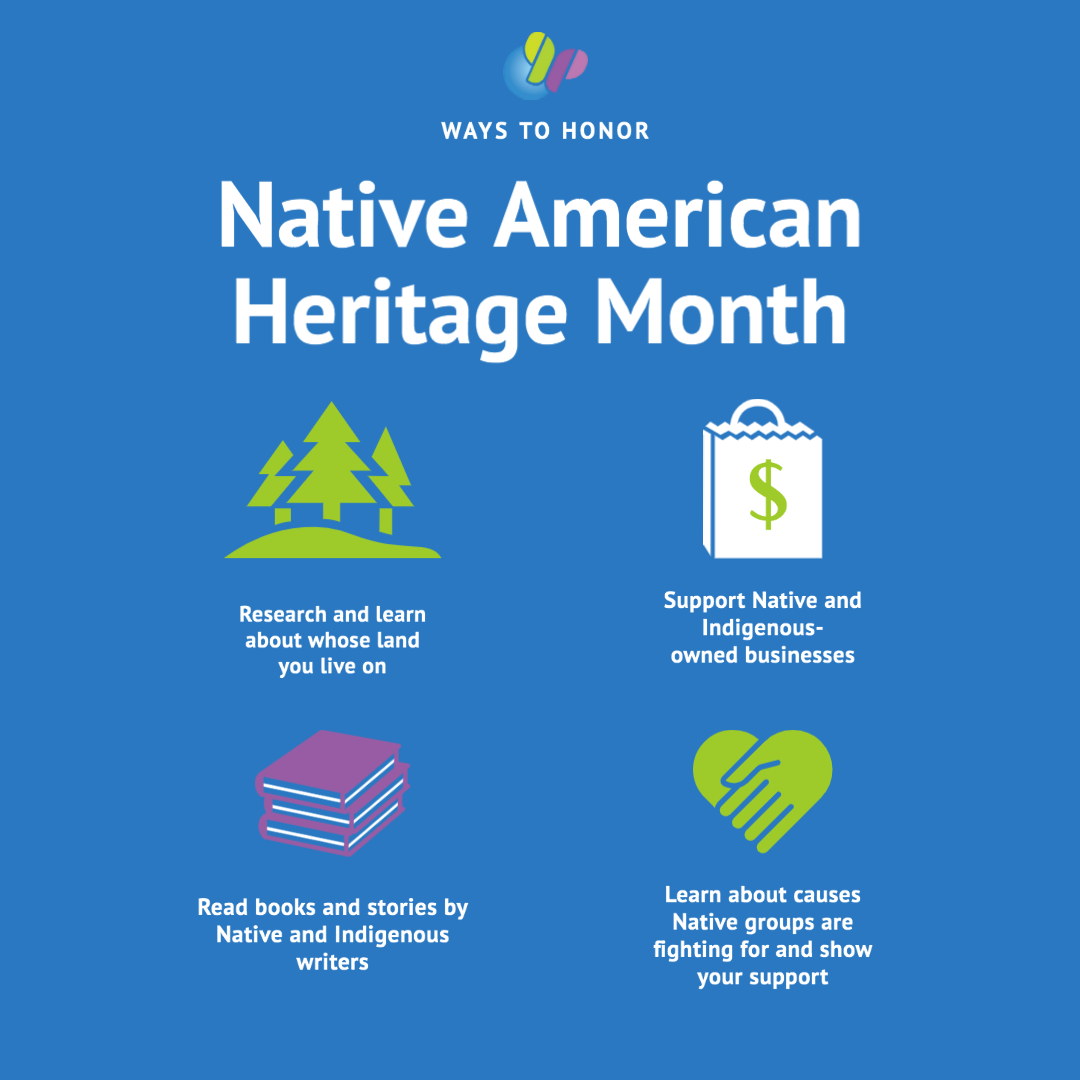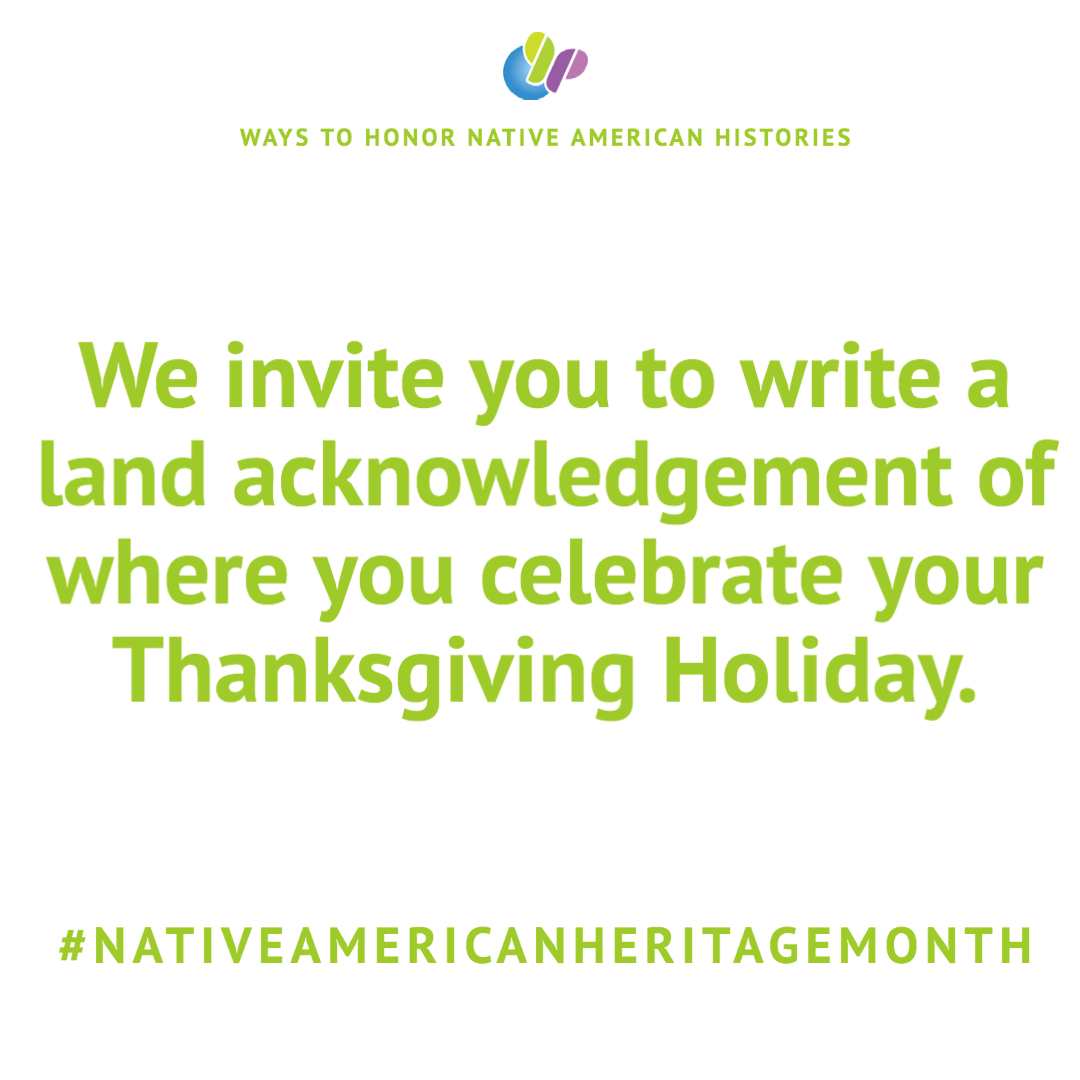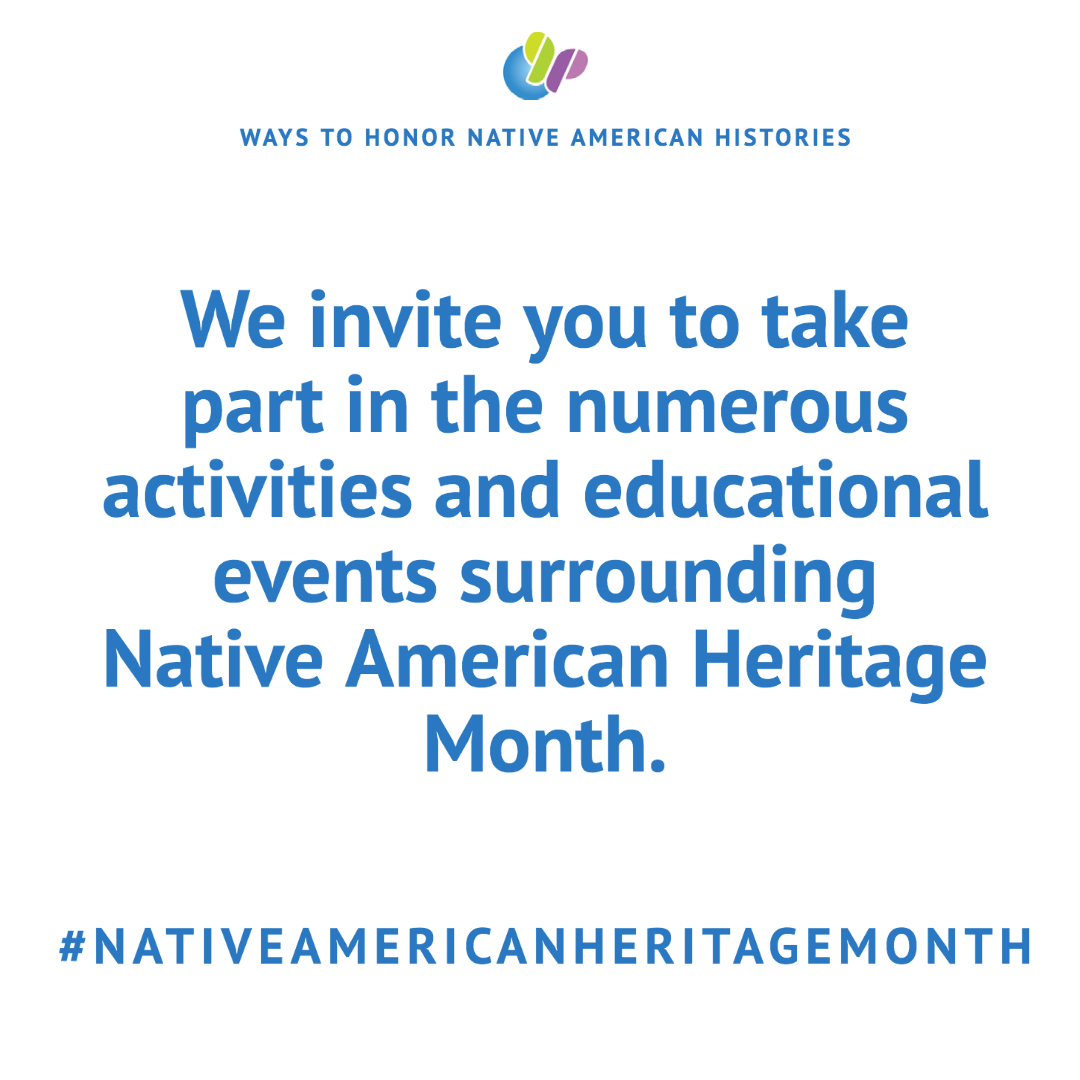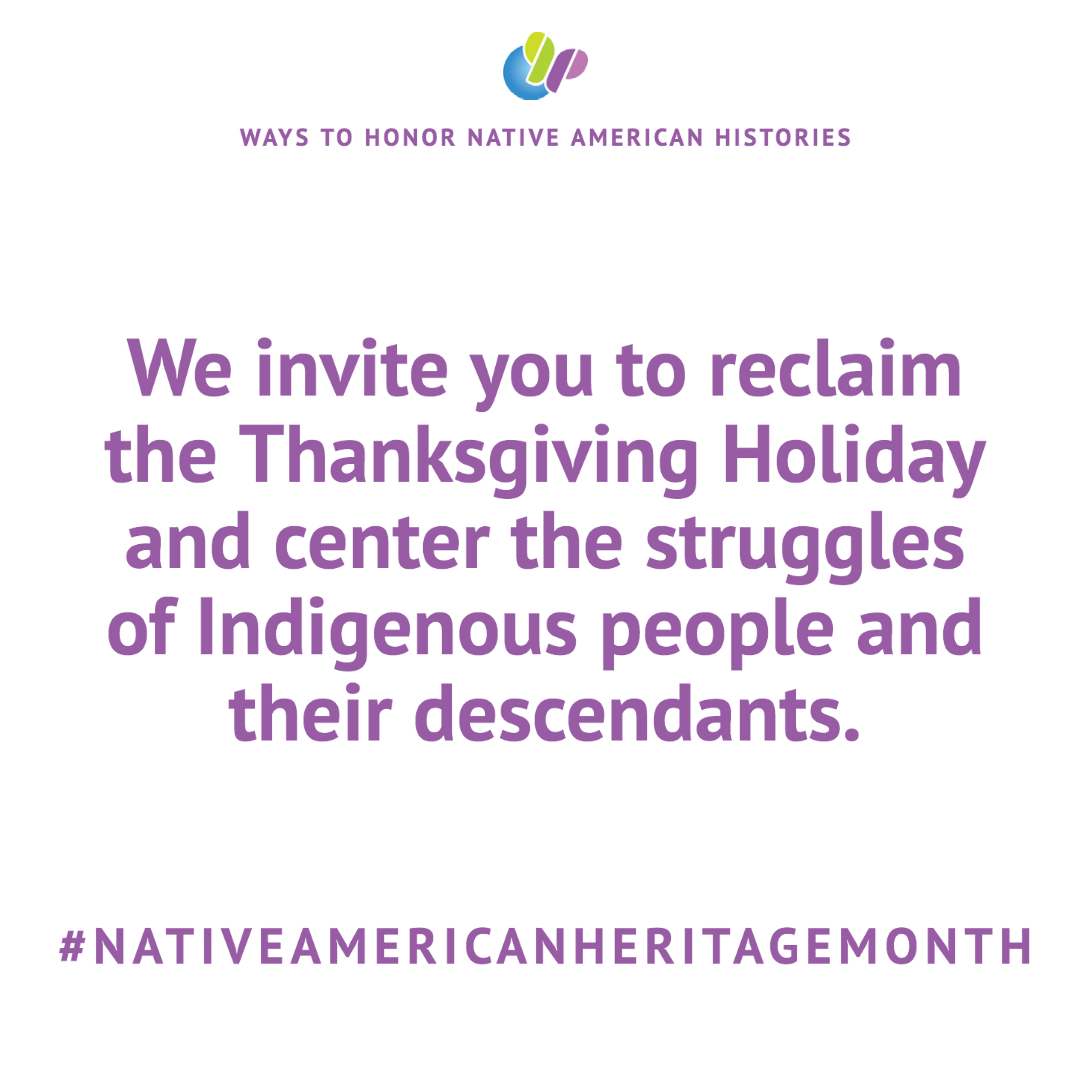Native American Heritage Month and Settler Colonialism
This November GP would like to recognize and center the histories of Indigenous people,
past and present, who have been the subjects of violence, discrimination, disenfranchisement, land displacement, and otherwise suffered from settler colonialism. We would like to pay our respects to the descendants of past and present and to future generations and to demonstrate a commitment to beginning the process of working to dismantle the ongoing legacies of settler colonialism.
One way to take action towards this work is to state a land acknowledgment of where you are celebrating your Thanksgiving Holiday this year. This is a simple statement that acknowledges the historical presence of the Indigenous people whose land you currently live on, or are visiting. By recognizing this history, you are taking one step towards becoming an active ally to Indigenous peoples, past, present, and future. For example:
Global Potential would like to acknowledge that our NYC office is located on the unceded land of the Munsee Lenape peoples. We would like to pay our respects to descendants past and present and to future generations, and to demonstrate a commitment to beginning the process of working to dismantle the ongoing legacies of settler colonialism.
We invite you to write a land acknowledgment of where you celebrate your Thanksgiving Holiday in your social media posts or to bring this up for discussion at your dinner table.
We also invite you to learn about modern-day efforts to reclaim the Thanksgiving Holiday and center the struggles of Indigenous people and their descendants. National Day of Mourning, organized by the United American Indians of New England, is one such effort. UAINE writes:
Since 1970, Native Americans and our supporters have gathered at noon on Cole's Hill in Plymouth to commemorate a National Day of Mourning on the US thanksgiving holiday. Many Native Americans do not celebrate the arrival of the Pilgrims and other European settlers. Thanksgiving day is a reminder of the genocide of millions of Native people, the theft of Native lands, and the relentless assault on Native culture. Participants in National Day of Mourning honor Native ancestors and the struggles of Native peoples to survive today. It is a day of remembrance and spiritual connection as well as a protest of the racism and oppression which Native Americans continue to experience. (2)
Please visit their website for more information on how to support directly: www.uaine.org
If you are located in New York City, we also encourage you to visit our friends at the American Indian Community House, a community organization founded in 1969 that is dedicated to serving the needs of Native Americans residing in NYC.
Finally, we invite you to take part in the numerous activities and educational events promoted during Native American Heritage Month. In 1990 the United States Government formalized this month of recognition by passing national legislation naming November as Native American Heritage Month (3). Educational activities, materials, and media can be found at the National Museum of the American Indian, PBS.org, National Congress of American Indians, Teaching for Change, and Zinn Education Project, among other organizations. A simple way to begin this learning journey is to educate yourself on what settler colonialism means. Teaching for Tolerance writes:
We can begin by defining settler colonialism as it relates specifically to Indigenous peoples of North America. The goal of settler-colonization is the removal and erasure of Indigenous peoples in order to take the land for use by settlers in perpetuity. According to Laura Hurwitz and Shawn Borque’s “Settler Colonialism Primer,” “This means that settler colonialism is not just a vicious thing of the past, such as the gold rush, but exists as long as settlers are living on appropriated land and thus exists today.” Historically, the settler-colonial agenda involved committing genocide by murdering Indigenous peoples. That agenda also meant stealing land through treaties that were later broken or ignored. [We] should understand that the United States couldn’t exist without its settler-colonial foundation Today, settler-colonialism plays out in the erasure of Indigenous presence. American schools do not teach about Native Americans, past or present; when they do, information is often wrong or incomplete. Students are rarely taught about contemporary Native peoples who have survived the settler-colonial process and continue to thrive, create, practice their traditions and live modern lives. Mainstream media outlets rarely feature stories about Indigenous peoples, and exceptions are usually during a crisis. The government diminishes and destroys Indigenous nations by denying their sovereignty or stealing land for private corporations to use for drilling, mining, fracking, farming and more. (1)
This November we extend our gratitude for your presence and participation in the GP community and hope you will join us in our effort to continue to learn about and recognize Indigenous history, culture, and identity.






